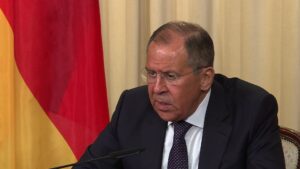Afghanistan’s human rights crisis leading to authoritarianism: UN
GENEVA (AA) – Afghanistan is facing a deepening human rights crisis under Taliban rule leading to authoritarianism, a UN report claims.
In his first report to the Human Rights Council, UN Special Rapporteur on human rights in Afghanistan Richard Bennett catalogs human rights abuses under the Taliban since it seized control of the country in August 2021.
These include a severe rollback of the rights of women and girls, reprisals targeting opponents and critics, attacks on minorities including Hazara-Shia, and a clampdown on the media.
Bennett expressed grave concern to the 51st session of the Human Rights Council about the staggering regression in women and girls’ enjoyment of civil, political, economic, social and cultural rights, including the suspension of secondary school education for girls.
Bennett’s report to the council, which is sitting from Sept. 12 to Oct. 7, said there had been systematic attacks against the civilian population, including revenge killings of former government officials.
“I am particularly concerned that former Afghan National Defense and Security Forces and officials remain subject to ongoing extrajudicial killings and enforced disappearances, despite the amnesty declared by the Taliban,” he said.
Bennett said journalistic independence and freedom of expression in Afghanistan were significantly curtailed and access to information has become increasingly challenging.
His report also highlighted that the situation of ethnic and religious minorities, which have faced historical persecution and attacks, has deteriorated since August 2021.
“Their places of worship (and) educational and medical centers have been systematically attacked,” Bennett noted.








